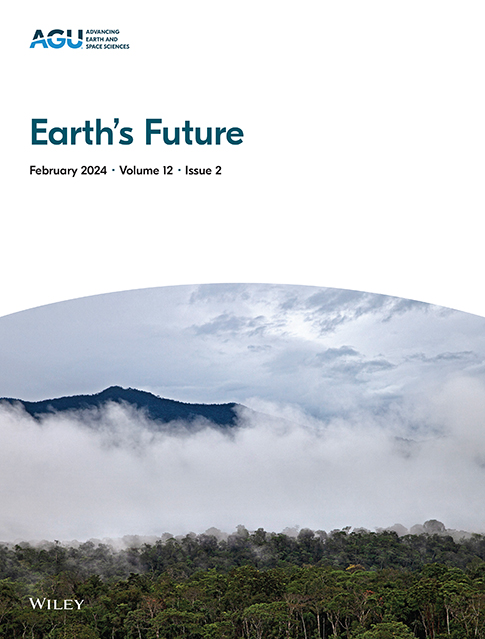对Edgeworth等人(2024)的答复:人类世是一个时间间隔,而且更多
IF 8.2
1区 地球科学
Q1 ENVIRONMENTAL SCIENCES
引用次数: 0
摘要
人类世的引入是为了表示一个戏剧性的、持续的、行星从长期的相对全新世的稳定状态转变,推动地球系统进入一个新的功能状态,超出了其自然变化。从地层学的角度来看,人类世实际上是一个新时代,而不是地球历史上所有人为影响的主观过滤。本文章由计算机程序翻译,如有差异,请以英文原文为准。




Reply to Edgeworth et al. (2024): The Anthropocene Is a Time Interval, and More Besides
The Anthropocene was introduced to denote a dramatic, ongoing, planetary shift from prolonged relative Holocene stability, driving the Earth system into a new functional state outside its natural variability. Now stratigraphically-grounded, the Anthropocene is de facto a new epoch, not the subjective filtering of all anthropogenic impacts in Earth history.
求助全文
通过发布文献求助,成功后即可免费获取论文全文。
去求助
来源期刊

Earths Future
ENVIRONMENTAL SCIENCESGEOSCIENCES, MULTIDI-GEOSCIENCES, MULTIDISCIPLINARY
CiteScore
11.00
自引率
7.30%
发文量
260
审稿时长
16 weeks
期刊介绍:
Earth’s Future: A transdisciplinary open access journal, Earth’s Future focuses on the state of the Earth and the prediction of the planet’s future. By publishing peer-reviewed articles as well as editorials, essays, reviews, and commentaries, this journal will be the preeminent scholarly resource on the Anthropocene. It will also help assess the risks and opportunities associated with environmental changes and challenges.
 求助内容:
求助内容: 应助结果提醒方式:
应助结果提醒方式:


